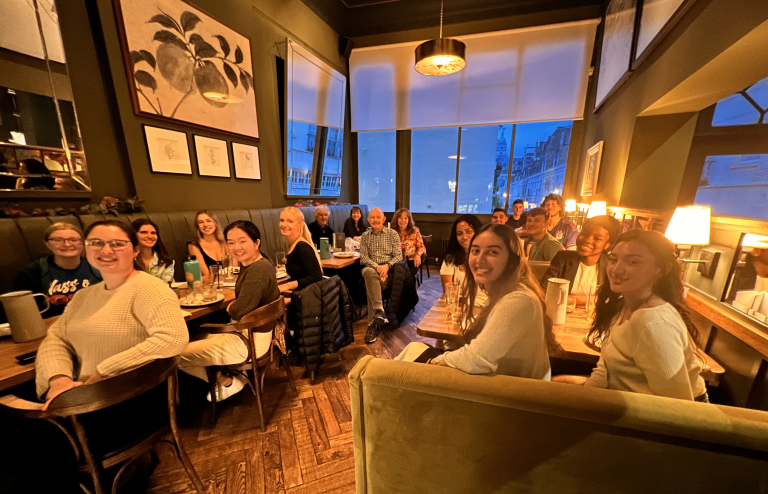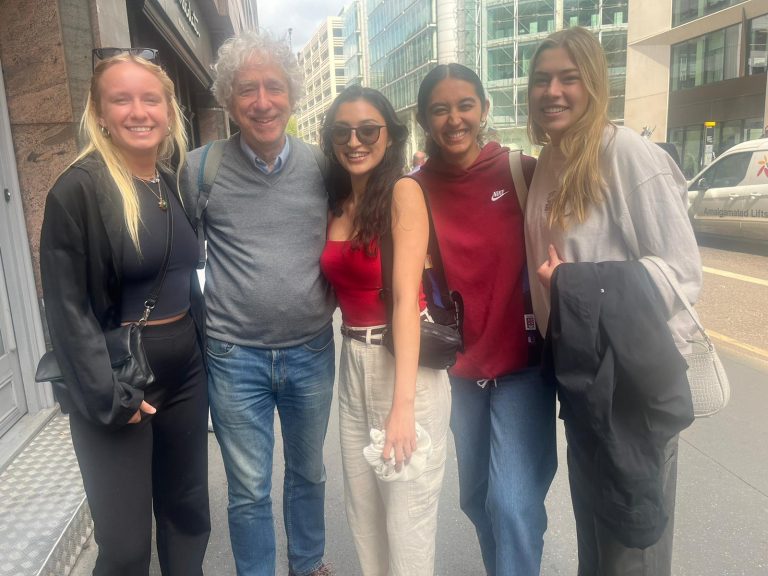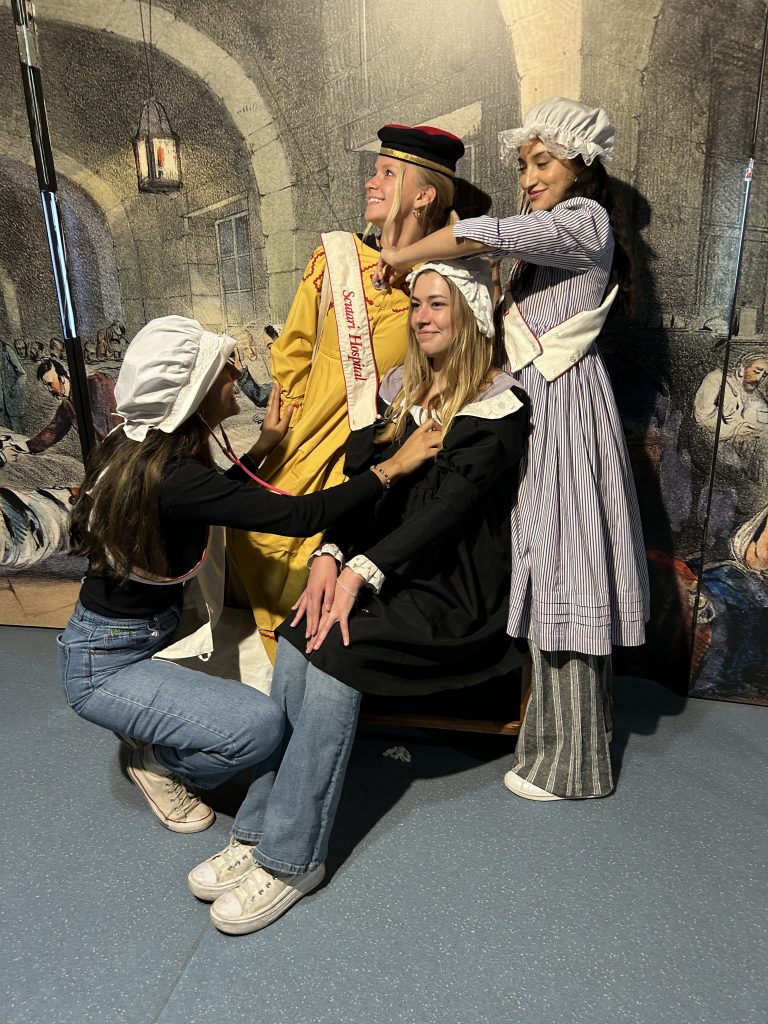In May 2023, 14 UF statistics and data science students participated in the second study abroad program focused on exploring the history of statistics in England. This program, led by faculty Beth Johnson and David Holmes, was based in Cambridge and London, UK. We were joined by Professor Beth Chance and one of her students from Cal Poly, San Luis Obispo, as she is interested in replicating a similar program. We were also delighted to have Alan Agresti, UF Emeritus Professor, join the group for our London “Welcome Dinner” and for our visit to the offices of the Royal Statistical Society, which included a walk to the tomb of Thomas Bayes.
After meeting at Heathrow Airport, we were transported by coach to our hotel in Cambridge for a four-night stay which commenced with a “Welcome Dinner” that evening. A science-themed guided walking tour of Cambridge on our first full day introduced students to the impressive history of both the city and the university. Some students even took advantage of the nice weather to go punting on the River Cam.

Over the next two days, the group visited Rothamsted Research and Bletchley Park. Rothamsted is where Sir Ronald Fisher conducted his historic agricultural experiments and many other influential statisticians worked there, such as Frank Yates. During the morning, we attended talks on a historical overview of statistics at Rothamsted, some of their current research activities, and how we could access and use their long-term data. After lunch, we were taken out into the fields to look at their classical experiments in the Broadbalk and Park Grass fields, experiments which have been running since the 1850s.
That evening, the group was given a talk on the history of codebreaking by a guest speaker to prepare them for the following day’s visit to Bletchley Park. At Bletchley, we were given a guided tour and learned in detail how Alan Turing and the team of statistical codebreakers were able to crack the Enigma code and shorten the Second World War. Highlights were visiting the actual huts, seeing a working replica of a Bombe machine, being able to touch and use an authentic Enigma machine, in fact, the very one used in the movie “The Imitation Game” and viewing Bletchley Park’s newest temporary exhibit on the Art of Data: Making Sense of the World. This exhibit demonstrates some of the ways the Codebreakers visualized data, alongside contemporary examples, with 3D, animated, and interactive visualizations which included sports analytics and cybersecurity.
These two fascinating days concluded the Cambridge portion of the program, and we moved on to London the next morning. An afternoon at the Science Museum saw us paying particular attention to the Winton Gallery where we looked at some of the earliest computing devices, such as Babbage’s Analytical Engine to see how innovation in information and communication technology has transformed our lives. On our first full morning, we toured London’s oldest football club, Fulham Football Club. This tour allowed students to see how these clubs are an integral part of British life.

In the afternoon, the group visited the offices of the Royal Statistical Society to learn how this learned society promotes statistics for the public good. Other visits included the National Archives in Kew, London, the UK government’s official archive containing 1000 years of history from the Domesday Book to the present with records from parchment and paper scrolls through to digital files. Here we were given three talks and were given access to various historic documents and records.

In the afternoon, we toured the small and specialized Florence Nightingale Museum, which proved to be the students’ favorite venue. We saw how she used statistical diagrams to study deaths and diseases during the Crimean War of 1854-56. We were given a delightful talk on the life of the famous nurse and discovered how in 1858, she became the first woman member of the Royal Statistical Society.
The program concluded with a river boat trip to Greenwich and a guided tour including Greenwich Park, the National Maritime Museum, a look at the old Royal Observatory, noting that one of the first applications of the normal distribution was the analysis of errors of measurement made in astronomical observations, errors that occurred because of imperfect instruments and imperfect observers. Students enjoyed standing on the Prime Meridian, the line of zero-degree longitude and the starting point for measuring distance both east and west around the Earth.
In summary, we had an incredibly successful study abroad program which every student seemed to fully enjoy and appreciate, departing with a host of memories, experiences, and new friends.
View All Fall 2023 Newsletter Articles